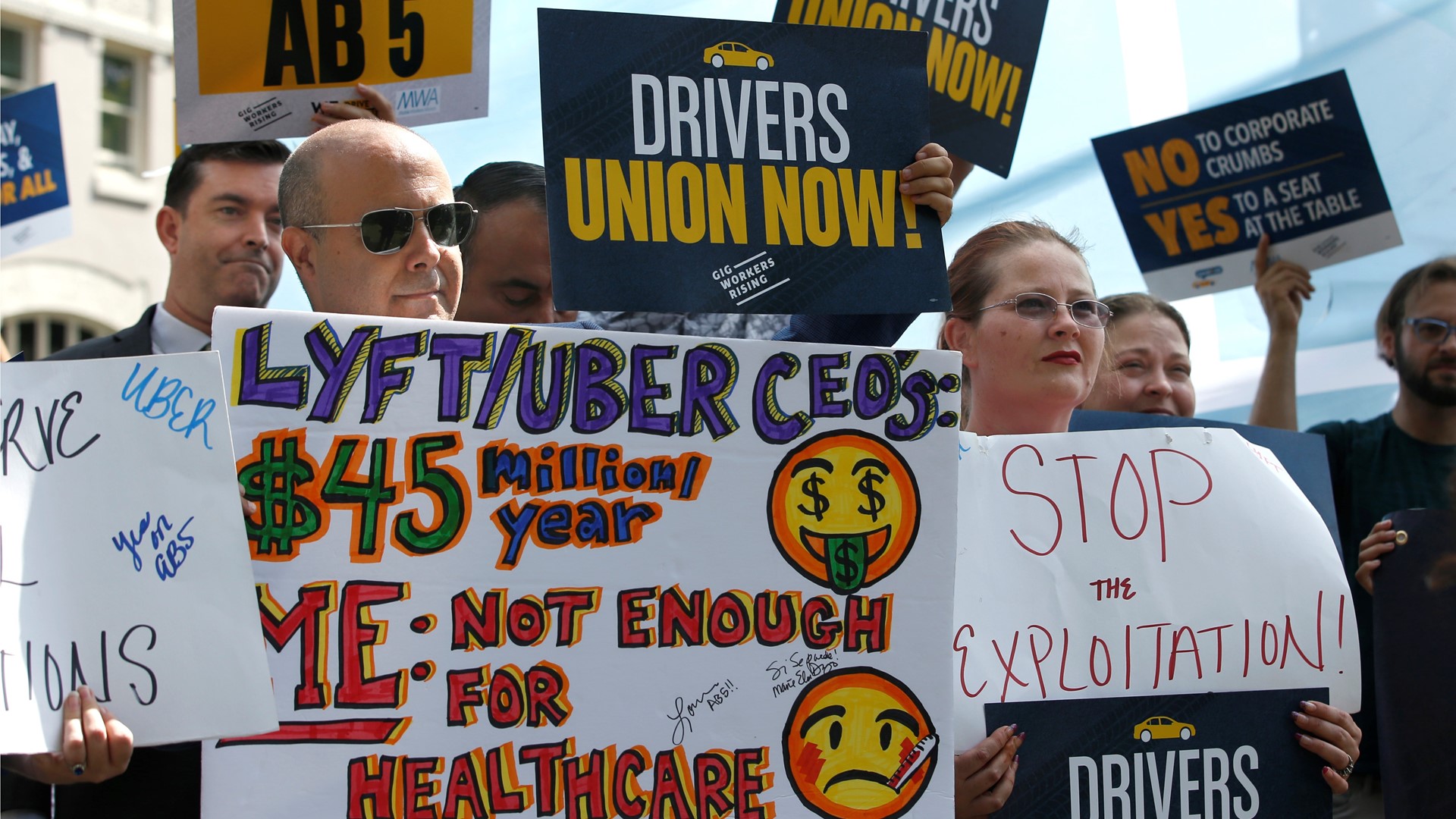SACRAMENTO, Calif. — Assembly Bill 5, which has passed both the California Senate and Assembly, addresses what labor advocates and the bill's author Assembly Member Lorena Gonzalez (D-San Diego), calls the misclassification of workers.
Although officials with both Uber and Lyft say they remain in negotiations with Gov. Gavin Newsom over the bill, both companies have proposed an alternative which they say would protect their drivers while also allowing for the flexibility that brings workers to those companies.
"Our proposal avoids the potential harm of forcing drivers to be employees, whether or not they want to—and the vast majority tell us they don’t want to be," said Tony West, Uber’s Chief Legal Officer. "And it would create legal certainty around the classification status of drivers. So, we’re disappointed that we were not able to reach a compromise."
App-based companies like Uber, Postmates, Lyft, and Amazon Flex rely on so-called independent contractors as drivers. These workers set their own hours and are paid per gig, ride, or delivery. Many of these app-based companies set the rates for each gig but workers typically keep all of their tips.
There are many rideshare drivers in support of and against the bill. The bill is largely supported by California labor and union groups while facing opposition by a number of industries that are historically comprised of independent contractors such as a cohort of semi-truck drivers.
AB 5 would set into law a 3-part “ABC” test for how workers should be classified. It was established in a 2018 landmark California Supreme Court ruling.
Under AB-5, an independent contractor is a worker (A) “Free from the control and direction” of the company that hired them while they perform their work. (B) The worker is performing work that falls “outside the hiring entity’s usual course or type of business.” (C) The worker has their own independent business or trade beyond the job for which they were hired.
As an employee, California workers are offered protections such as an hourly minimum wage, unemployment insurance, paid sick days and other benefits required by law. Those protections could come at a cost to everyone said gig economy expert Ryan Vet.
“One of the things that analysts predict is that there could be as much as a 30-percent increase in consumer fares,” Vet said.
The bill may move app-based companies to increase prices and require workers to have set hours, Vet said. The plus would be that all workers would be offered protections of employees, Vet said.
A spokesperson with Lyft criticized the state’s political leadership saying it missed an opportunity to support what a majority of rideshare drivers want and knocked exemptions for specific industries through AB 5.
“We are fully prepared to take this issue to the voters of California to preserve the freedom and access drivers and riders want and need,” said Adrian Durbin, a Lyft spokesperson.
Even if the bill is signed, West contends that Uber drivers do qualify as independent contractors under the new law and that the company does not have plans to reclassify workers if the bill takes effect next January.
“Because we continue to believe drivers are properly classified as independent, and because we’ll continue to be responsive to what the vast majority of drivers tell us they want most—flexibility—drivers will not be automatically reclassified as employees, even after January of next year,” West said.
Uber officials announced that the company is partnering with Lyft, and that the two companies have dropped a combined $60 million into campaign toward a 2020 ballot initiative. The company’s will ask voters to approve “pro-driver policies.”
Continue the conversation with Giacomo on Facebook.
FREE ABC10 APP:
►Stay In the Know! Sign up now for ABC10's Morning Blend Newsletter



